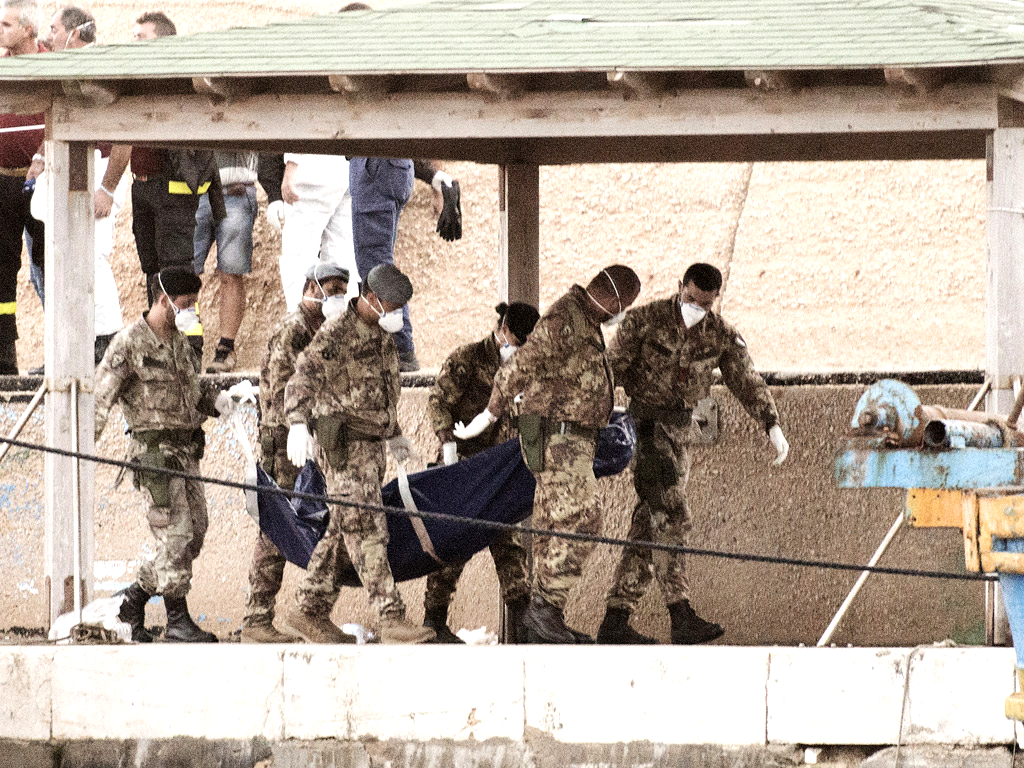Revealed: Mafia’s prime role in human-trafficking misery
Italian mobsters work with Egyptian crime syndicates to imprison migrants and extort cash

Your support helps us to tell the story
From reproductive rights to climate change to Big Tech, The Independent is on the ground when the story is developing. Whether it's investigating the financials of Elon Musk's pro-Trump PAC or producing our latest documentary, 'The A Word', which shines a light on the American women fighting for reproductive rights, we know how important it is to parse out the facts from the messaging.
At such a critical moment in US history, we need reporters on the ground. Your donation allows us to keep sending journalists to speak to both sides of the story.
The Independent is trusted by Americans across the entire political spectrum. And unlike many other quality news outlets, we choose not to lock Americans out of our reporting and analysis with paywalls. We believe quality journalism should be available to everyone, paid for by those who can afford it.
Your support makes all the difference.The role of Italian mobsters in human trafficking – of the kind that saw more than 350 African migrants perish off the coast of Lampedusa in a single boat disaster earlier this month – has been laid bare by police.
Members of Mafia organisations work with crime syndicates in Egypt to charge would-be illegal immigrants for the dangerous voyage from Africa to Italy – and then hold them prisoner in horrendous conditions, to extort more money from the migrants and their families, according to police reports carried by La Repubblica.
Dramatic video evidence has emerged of one of the worst cases, which occurred on 23 September 2011. After paying an Egyptian crime clan to be taken by boat to Sicily, 22 Egyptian men were seized when they landed in the port of Rutta e Ciauli, near Syracuse, and locked in a dark basement for eight days without food or water. Their captors refused to release them until their families wired more money to their captors.
After police freed them on 30 September, the migrants said they had only managed to survive by drinking rainwater that dripped into the dungeon.
In video footage of the moment in which police break into their prison, one policeman told the reporter: “They were herded like rats... the smell was nauseating.”
The Egyptians seized at Rutta e Ciauli told investigators that when their boat neared land, after eight days of travel, it was met by a small boat with three Italians and an Egyptian named Hamada aboard; he was arrested but police have yet to identify the Italians.
According to police, a chilling wiretap made in 2011 overheard one Sicilian Mafia boss telling the Egyptian traffickers: “If they find you, throw them [the migrants] all into the sea”.
Investigators say another large group of North African migrant “prisoners” was discovered earlier this year in Campania, the region dominated by the Camorra crime syndicate. Another case occurred in Sicily two months ago.
Italian police said the payment system in Rutta e Ciauli required migrants to settle part of their fee at the start of their journey, with the Egyptian Amro crime family. An additional amount had to be paid via the Western Union system to a cashier located in Milan. Failure to pay the full amount saw the migrants detained indefinitely.
Mafia expert and author Corrado de Rosa said it was “inevitable” that Mafia clans would be involved in human trafficking on the southern coast of Italy.
“If there are illegal activities in their territory, they’ll know about and they’ll regulate and profit from them,” he said.
He added that Rutta e Ciauli, where the 22 Egyptians in the video were seized, was a “notorious and violent place where migrants, mafia and traffickers come into contact”.
And he said the system of imprisoning migrants until payments are made tied in with what happens across the south of Italy – in the orange groves in Calabria and with the fruit pickers in Puglia. “It’s not exaggerating to use the word “slavery” for the migrants, usually African, some of whom have no freedom until they’ve paid enough money.
Join our commenting forum
Join thought-provoking conversations, follow other Independent readers and see their replies
Comments